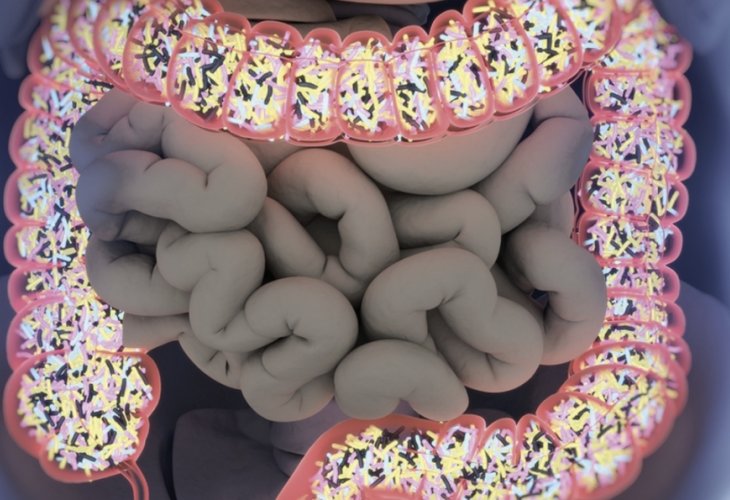Can Gut Bacteria Help You Achieve a Successful Diet?
A new study found that a certain bacterium missing in the guts of obese individuals raises blood glutamic acid levels, which in turn increases obesity risk.
 (Photo: shutterstock)
(Photo: shutterstock)In the last five years, more and more studies point to a connection between a well-developed friendly bacteria population in the human gut and maintaining a healthy weight. A new study from the Faculty of Biology at the University of Copenhagen again found a direct link between a certain type of human-friendly bacteria and the risk of obesity.
In the new study, a thorough analysis was conducted on the gut bacteria of 72 individuals suffering from extreme obesity (BMI of 35 and above) and the gut bacteria of 79 lean individuals (BMI of 20). In addition, researchers took blood samples from the study participants and examined the amino acid properties in their blood.
The study found that a specific bacterium named B. thetaiotaomicron, was either absent or present in very small amounts in participants suffering from extreme obesity. In contrast, among the lean individuals, the bacterium was present in relatively high concentrations.
Additionally, the researchers discovered that participants suffering from extreme obesity had significantly higher blood levels of glutamic acid – an acid that plays an important role in the function of neurotransmitters. The researchers believe there is a connection between the presence of the bacterium and the amount of glutamic acid in the blood, as it is known that some gut bacteria produce this acid while others break it down. The bacterium B. thetaiotaomicron, is among those that break down this acid. Considering this fact and previous research proving that high levels of glutamic acid increase the risk of severe obesity, it is clear that the absence of B. thetaiotaomicron, from the guts of people suffering from extreme obesity is linked to their weight gain.
In the second phase of the study, researchers took samples of the bacterium B. thetaiotaomicron, from the guts of the lean participants and implanted the bacterium in the guts of mice with a genetic tendency to obesity. The result: the bacteria thrived in the mice, their blood glutamic acid levels decreased, and the mice (despite their genetic tendency to obesity) lost weight.
"It seems that blood glutamic acid can lead to obesity, and the composition of gut bacteria and whether it primarily produces or breaks down the acid will determine if people gain weight or not," say the researchers. What's the next step? They hope that after conducting further studies to confirm the findings, it will be possible to develop a special kind of probiotic, the consumption of which would lead to weight loss. It's worth the wait.

